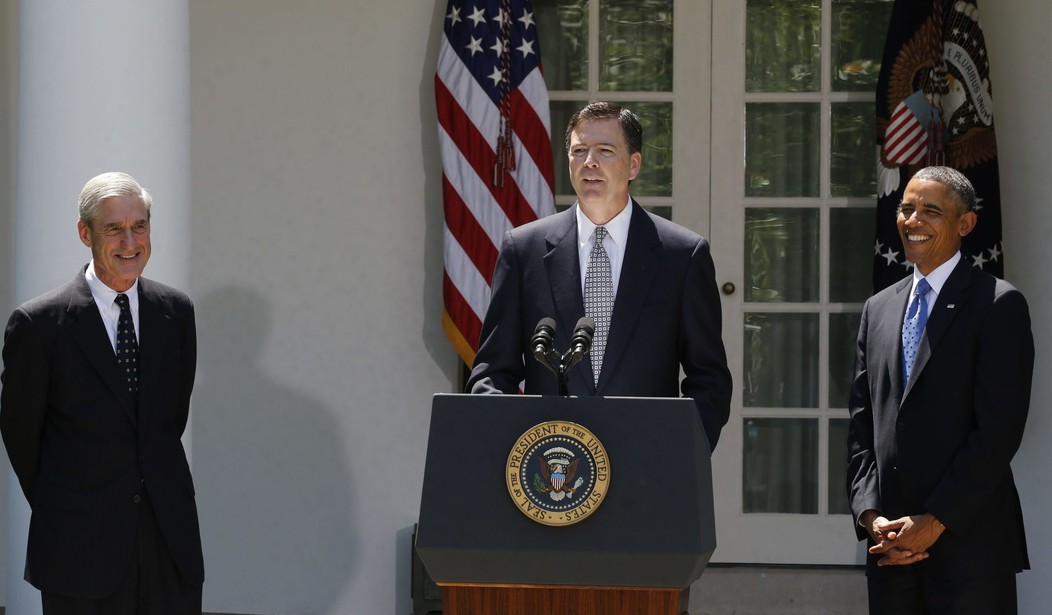As readers of my columns know, I am a fan of Peter Schweizer, who runs the Government Accountability Institute and is author of the crucially important Clinton Cash: The Untold Story of How and Why Foreign Governments and Businesses Helped Make Bill and Hillary Rich. The book is an exhaustively researched account of the Clinton Foundation scheme, and media reporting indicates that it triggered the FBI’s investigation of the Foundation’s pay-to-play scheming.
Mr. Schweizer is the first to admit (maybe I should say, to brag) that he is not a lawyer or a constitutional scholar. He’s a first-rate investigative journalist. In that spirit, I want to rebut a legal error I’ve heard him make in a couple of interviews over the last few days, most recently when interviewed by Rush Limbaugh this afternoon. Apparently making some errant assumptions based on the fact that the FBI director, by statute, has a ten-year term, he has opined that the FBI is an agency independent of the executive branch; therefore, he concludes, the FBI director does not work for, and may not be fired by, the president.
This is incorrect.
In our system, law enforcement is an executive power. The FBI is thus an executive branch agency. Indeed, far from independent, it is a part of the Justice Department; the FBI director is subordinate to the attorney general in the chain-of-command.
Under the Constitution, all executive power is endowed in one official, the president of the United States. Every official who wields power in the executive branch thus wields it at the pleasure of the chief executive. The president may terminate any executive officer, even those who have been confirmed by Congress, for any reason or no reason. The FBI director is no different.
It is true that Congress has given the FBI director a ten-year term, but it is best thought of as a presumptive ten-year limit. There are two explanations for it.
The first is J.Edgar Hoover. After his legendary (and notorious) 43-year tenure, Congress and the Ford White House decided that such awesome power should not be in a single set of hands for so long. In 1976, a law was enacted limiting the director’s term to ten years.
Why ten years? That brings us to the second explanation: the aspiration that law-enforcement should be apolitical and non-partisan. By settling on a ten-year limit, two years longer than any president may serve, lawmakers signaled a preference for the FBI director to be retained, even when presidential administrations change, regardless of party.
Understand, though: This is a preference, it is not binding on the president. Presumptively, after being confirmed, the FBI director is retained by subsequent presidents. If the president decides to make a change, however, the president is constitutionally authorized to remove the director and does not need cause – at least not legally (political need is always a different calculation).
Since Congress imposed the ten-year limitation, one FBI director has been removed: Director William Sessions was fired by President Clinton in 1993 after he refused to resign. It turns out, moreover, that the limit is not much of a limit: In 2011, when President Obama wanted to keep Director Robert Mueller for an extra two years, Congress accommodated him by enacting legislation extending the term. It was when Mueller’s term ended that Director James Comey was appointed in 2013.
Presumptively, Director Comey would serve until September 4, 2023. But that is only if the current president and any future president between now and then chooses to retain him.









Join the conversation as a VIP Member